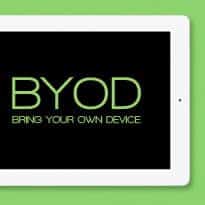South Staffs implements BYOD
- 7 September 2012

South Staffordshire and Shropshire NHS Foundation Trust has implemented a ‘bring your own device strategy’ as part of an initiative to improve its mobile working capability.
The trust, which provides mental health, learning disability and specialist children’s services across 120 premises, started with a “soft” roll-out of the strategy in May and now has 390 members of staff using mobile devices.
The policy is not compulsory and if staff want to use their own device they have to approach the trust’s IM&T department to obtain a licence.
Personal devices can be used to access work email and the organisation’s e-rostering system through a secure gateway.
At the moment, they cannot be used to access clinical systems, but the trust is looking to include such functionality once it implements Rio, its new electronic patient record, in April.
The trust’s head of IM&T development, Peter Kendal, said: “We are trying to reduce the cost to the trust of supplying devices.
“When the trust provided a device to a clinician, the cost over three years would be around £700; yet we have many staff who have smartphones that are over-specified for what they are used for.
“The BYOD policy is not forced on any of our staff. The agreement we have with them is that we will pay for the security licence, but we don’t cover the bandwidth that is used or pay the bill.”
The devices are secured with McAfee’s enterprise mobility management, which allows for the remote wiping of devices if they are lost. An agreement between the trust and its staff says that if this happens the IT department must be notified by the end of the working day.
The trust has the capability to support 5,000 users. It has also recently purchased 1,200 laptops from Dell as part of a move to a ‘hot desk’ working environment.
“We have also rolled out iPads and Android devices, as we are trying to find a way of enabling staff,” Kendal said.
“This has been a project led by staff and not by technology. The feedback has been positive as we are not compelling staff to use it. Security is an evolutionary process but we are now comfortable with this process.”
The pros and cons of BYOD in the health service are explored in this week’s Insight.





